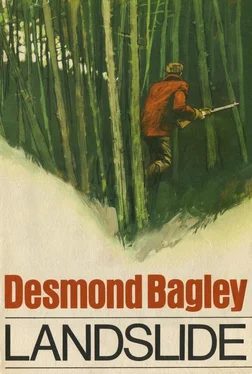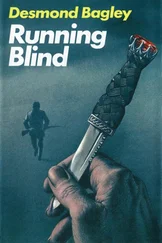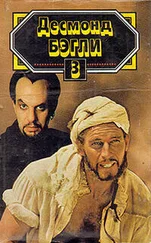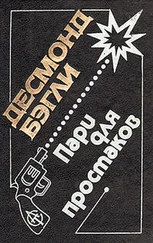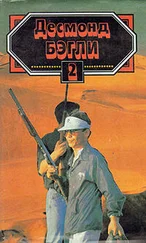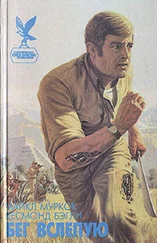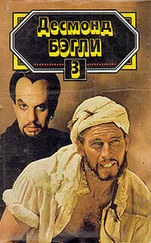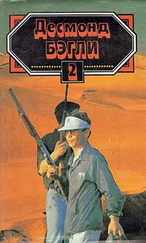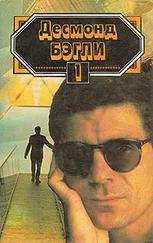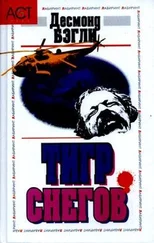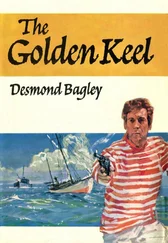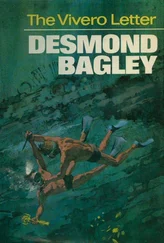I made certain that the big yellow circle on the back of the pack was clearly visible. That’s something I consider really important. Anywhere you walk in the woods on the North American continent you’re likely to find fool hunters who’ll let loose a 30.30 at anything that moves. That big yellow circle was just to make them pause before they squeezed the trigger, just time enough for them to figure that there are no yellow-spotted animals haunting the woods. For the same reason I wore a yellow-and-red checkered mackinaw that a drunken Indian wouldn’t be seen dead in, and a woollen cap with a big red bobble on the top. I was a real colourful character.
I checked the breech of my rifle to make sure there wasn’t one up the spout, slipped on the safety-catch and set off, heading south along the lake shore. I had established my base and I was ready to do the southern end of the survey. In one week the helicopter would pick me up and take me north, ready to cover the northern end. This valley was going to get a thorough going-over.
At the end of the first day I checked my findings against the Government geological map which was, to say the best of it, sketchy; in fact, in parts it was downright blank. People sometimes ask me: ‘Why doesn’t the Government do a real geological survey and get the job done once and for all?’ All I can say is that those people don’t understand anything about the problems. It would take an army of geologists a hundred years to check every square mile of Canada, and then they’d have to do it again because some joker would have invented a gadget to see metals five hundred feet underground; or, maybe, someone else would find a need for some esoteric metal hitherto useless. Alumina ores were pretty useless in 1900 and you couldn’t give away uranium in the 1930s. There’ll still be jobs for a guy like me for many years to come.
What little was on the Government map checked with what I had, but I had it in more detail. A few traces of molybdenum and a little zinc and lead, but nothing to get the Matterson Corporation in an uproar about. When a geologist speaks of a trace, he means just that.
I carried on the next day, and the day after that, and by the end of the week I’d made pretty certain that the Matterson Corporation wasn’t going to get rich mining the southern end of the Kinoxi Valley. I had everything packed back at the camp and was sitting twiddling my thumbs when the helicopter arrived, and I must say he was dead on time.
This time he dropped me in the northern area by a stream, and again I spent the day making camp. The next day I was off once more in the usual routine, just putting one foot in front of the other and keeping my eyes open.
On the third day I realized I was being watched. There wasn’t much to show that this was so, but there was enough; a scrap of wool caught on a twig near the camp which hadn’t been there twelve hours earlier, a fresh scrape on the bark of a tree which I hadn’t made and, once only, a wink of light from a distant hillside to show that someone had incautiously exposed binoculars to direct sunlight.
Now, in the north woods it’s downright discourteous to come within spitting distance of a man’s camp and not make yourself known, and anyone who hadn’t secrecy on his mind wouldn’t do it. I don’t particularly mind a man having his secrets — I’ve got some of my own — but if a man’s secrets involve me then I don’t like it and I’m apt to go off pop. Still, there wasn’t much I could do about it except carry on and hope to surprise this snoopy character somehow.
On the fifth day I had just the far northern part of the valley to inspect, so I decided to go right as far as I had to and make an overnight camp at the top of the valley. I was walking by the stream, trudging along, when a voice behind me said, ‘Where do you think you’re going?’
I froze, then turned round carefully. A tall man in a red mackinaw was standing just off the trail casually holding a hunting rifle. The rifle wasn’t pointing right at me; on the other hand, it wasn’t pointing very far away. In fact, it was a moot point whether I was being held up at gun-point or not. Since this guy had just stepped out from behind a tree he had deliberately ambushed me, so I didn’t care to make an issue of it right then — it wouldn’t have been the right time. I just said, ‘Hi! Where did you spring from?’
His jaw tightened and I saw he wasn’t very old, maybe in his early twenties. He said, ‘You haven’t answered my question.’
I didn’t like that tightening jaw and I hoped his trigger finger wasn’t tightening too. Young fellows his age can go off at half-cock awfully easily. I shifted the pack on my back. ‘Just going up to the head of the valley.’
‘Doing what?’
I said evenly, ‘I don’t know what business it is of yours, buster, but I’m doing a survey for the Matterson Corporation.’
‘No, you’re not,’ he said. ‘Not on this land.’ He jerked his head down the valley. ‘See that marker?’
I looked in the direction he indicated and saw a small cairn of stones, much overgrown, which is why I hadn’t spotted it before. It would have been pretty invisible from the other side. I looked at my young friend. ‘So?’
‘So that’s where Matterson land stops.’ He grinned, but there was no humour in him. ‘I was hoping you’d come this way — the marker makes explanations easier.’
I walked back and looked at the cairn, then glanced at him to find he had followed me with the rifle still held easily in his hands. We had the cairn between us, so I said, ‘It’s all right if I stand here?’
‘Sure,’ he said airily. ‘You can stand there. No law against it.’
‘And you don’t mind me taking off my pack?’
‘Not so long as you don’t put it this side of the marker.’ He grinned and I could see he was enjoying himself. I was prepared to let him — for the moment — so I said nothing, swung the pack to the ground and flexed my shoulders. He didn’t like that — he could see how big I was, and the rifle swung towards me, so there was no question now about being held up.
I pulled the maps out of a side pocket of the pack and consulted them. ‘There’s nothing here about this,’ I said mildly.
‘There wouldn’t be,’ he said. ‘Not on Matterson maps. But this is Trinavant land.’
‘Oh! Would that be Clare Trinavant?’
‘Yeah, that’s right.’ He shifted the rifle impatiently.
I said, ‘Is she available? I’d like to see her.’
‘She’s around, but you won’t see her — not unless she wants to see you. ’ He laughed abruptly. ‘I wouldn’t stick around waiting for her; you might take root.’
I jerked my head down the valley. ‘I’ll be camped in that clearing. You push off, sonny, and tell Miss Trinavant that I know where the bodies are buried.’ I don’t know why I said it but it seemed a good thing to say at the time.
His head came up. ‘Huh?’
‘Run away and tell Miss Trinavant just that,’ I said. ‘You’re just an errand boy, you know.’ I stooped, picked up the pack, and turned away, leaving him standing there with his mouth open. By the time I reached the clearing and looked back he had gone.
The fire was going and the coffee was bubbling when I heard voices from up the valley. My friend, the young gunman, came into sight but he’d left his artillery home this time. Behind him came a woman, trimly dressed in jeans, an open-necked shirt and a mackinaw. Some women can wear jeans but not many; Ogden Nash once observed that before a woman wears pants she should see herself walking away. Miss Trinavant definitely had the kind of figure that would look well in anything, even an old burlap sack.
And she looked beautiful even when she was as mad as a hornet. She came striding over to me in a determined sort of way, and demanded, ‘What is all this? Who are you?’
Читать дальше
Конец ознакомительного отрывка
Купить книгу
